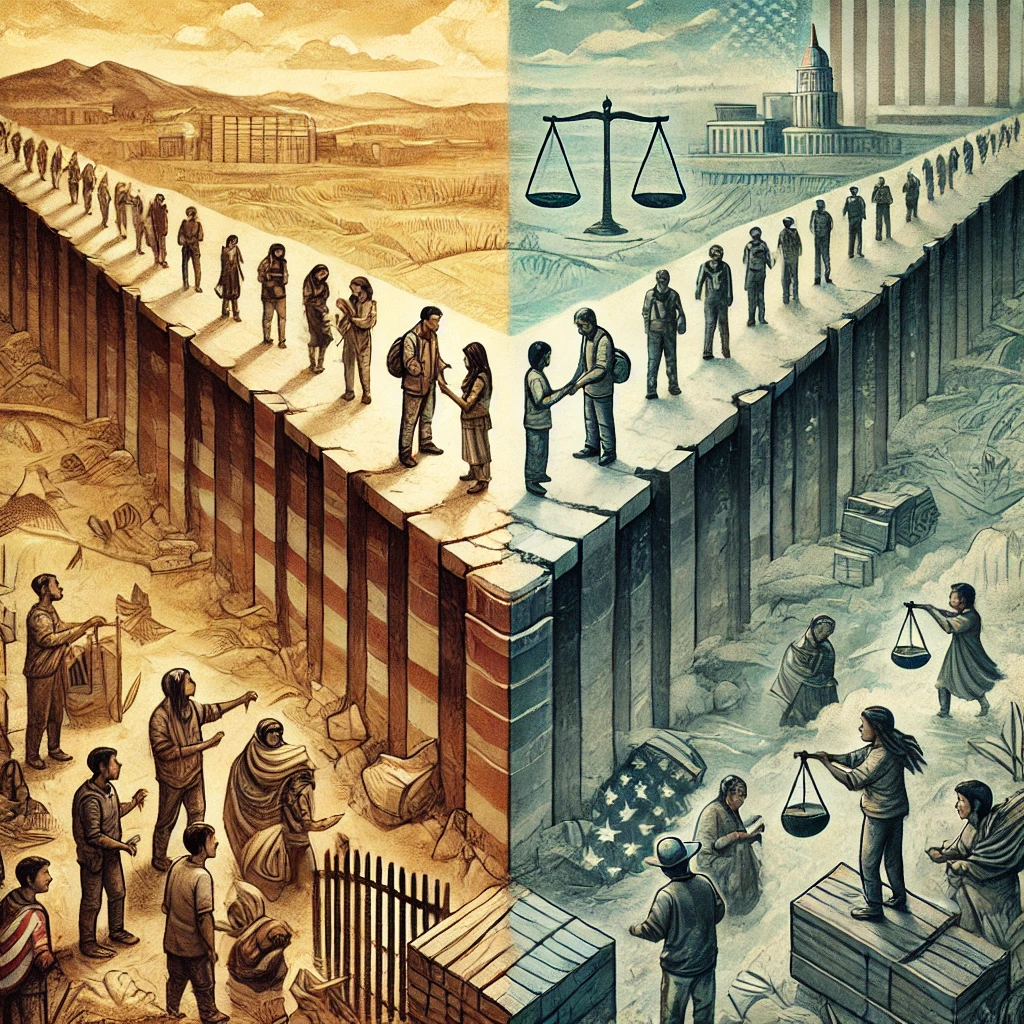
Across America’s sprawling landscape, a debate crackles like a desert wind: illegal immigration. Voices rise in anger, fear, and frustration, each side clutching their truths like parched throats clutching mirages. But amidst the din, a question whispers, its echo unheard over the clamor: are we all, perhaps, already on the same side?
On the one hand, the activists stand, their voices a chorus of outrage. They see faces etched with desperation, stories woven from hardship and hope, and dreams clinging to the threads of opportunity just beyond the border. They see mothers fleeing violence, fathers yearning for work, and children with eyes that mirror the vast unknown. They argue that turning them away is to close not just a border but a door to compassion, to turn our backs on the ideals that define us as a nation.
Yet, another chorus answers, the voices of concern and caution. They see America not as an endless sky but as a finite resource, a vessel already teetering under its own burdens. They see schools strained, jobs scarce, and anxieties simmering beneath the surface. To welcome all without limit, they warn, is to risk fracturing our foundation, leaving both newcomers and citizens adrift in a sea of unfulfilled promises.
But is this truly a binary battle, a clash of absolutes? Can we only be heroes or villains in this tangled narrative? Within the complexities of this issue lies a different truth: the line between complicit and concerned, between open arms and wary hands, runs across borders and within each of us.
Consider the silent majority, those who watch the debate unfold with a gnawing unease. They yearn for solutions, for bridges built not just of steel and mortar but of understanding and empathy. They see both the human desperation on one side and the societal anxieties on the other, their hearts caught in the crossfire. Are they, by their silence, somehow complicit in the impasse?
Or are they the very key to unlocking a different path? Amidst the polarized chorus, theirs is the voice of nuance, reason, and the untapped potential for collective action. The voice whispers: Let us bridge not just borders but also the divides within ourselves.
Let us engage in honest dialogue, acknowledging the anxieties that fuel fears and the stories that fuel compassion. Let us seek solutions that honor the American dream and the human stories woven into its fabric. Let us, in essence, rewrite the narrative, transforming ourselves from bystanders to architects, co-creating a future where compassion and responsibility find common ground.
America, after all, is not just a nation of borders and laws but a mosaic of stories. It is the land of the hopeful immigrant, anxious citizen, restless activist, and weary watcher. And within each of these stories, within each of us, lies the potential to bridge the divides, to find a solution that transcends the clamor of absolutes.
So, let us remember, as we navigate this complex crossroads, that our choices extend beyond raising banners or turning away. We can choose to be observers and participants in the ongoing story of America, a story where compassion and responsibility find their rightful place. This story unfolds not just on the dusty plains of the border but in the quiet corners of our hearts, where the battle between fear and empathy, inaction and action, is ultimately fought.
Ultimately, the question is not whether we are already on the same side but whether we should stand on it together.